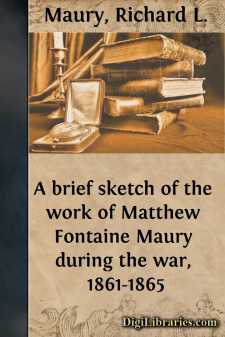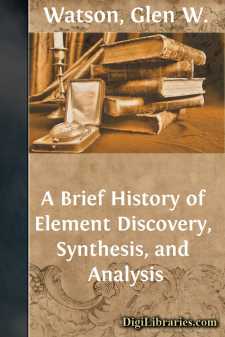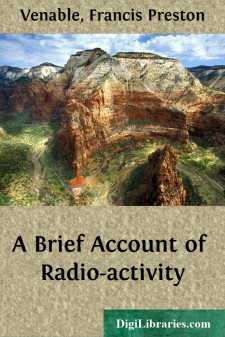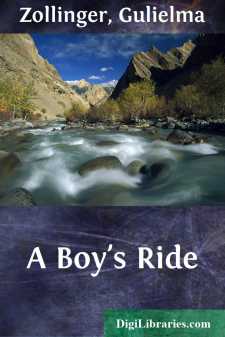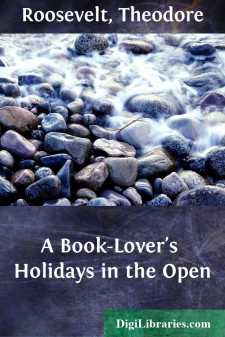Fiction
- Action & Adventure 180
- Biographical 15
- Christian 59
- Classics
- Coming of Age 5
- Contemporary Women 3
- Erotica 8
- Espionage/Intrigue 12
- Fairy Tales, Folklore & Mythology 236
- Family Life 169
- Fantasy 117
- Gay 1
- General 596
- Ghost 32
- Historical 808
- Horror 43
- Humorous 160
- Jewish 25
- Legal 4
- Medical 22
- Mystery & Detective 315
- Political 49
- Psychological 41
- Religious 64
- Romance 159
- Sagas 11
- Science Fiction 730
- Sea Stories 113
- Short Stories (single author) 537
- Sports 10
- Suspense 1
- Technological 8
- Thrillers 2
- Urban Life 31
- Visionary & Metaphysical 1
- War & Military 173
- Westerns 199
Classics Books
Sort by:
by:
Richard L. Maury
TORPEDOES Torpedoes as effective weapons in actual war were first utilized by the Confederate navy, and Captain Matthew F. Maury introduced them into that service, and continually improved and perfected their use until they had become the mighty engine of modern warfare and revolutionized the art of coast and harbour defense. He, it was, who in 1861 mined James River, who, in person commanded the first...
more...
by:
Eliza Southall
BRIEF MEMOIR OF ELIZA SOUTHALL. Eliza Southall, wife of William Southall, Jr., of Birmingham, England, and daughter of John and Eliza Allen, was born at Liskeard, on the 9th of 6th month, 1823. As she felt a strong attachment to the scenes of her childhood, and an interest in the people among whom she spent the greater part of her short life,—an attachment which is evinced many times in the course of...
more...
by:
Barnes & Co.
EARLY DISCOVERIES AND SETTLEMENTS. [Illustration: BALBOA.] GEOGRAPHICAL KNOWLEDGE IN THE FIFTEENTH CENTURY.—The people of Europe had then never heard of America. About that time, a great desire for geographical knowledge was awakened. The compass and the astrolabe—an instrument for reckoning latitude—had been already invented. Voyagers were no longer compelled to creep along the shore, but began...
more...
by:
Glen W. Watson
It is well known that the number of elements has grown from four in the days of the Greeks to 103 at present, but the change in methods needed for their discovery is not so well known. Up until 1939, only 88 naturally occurring elements had been discovered. It took a dramatic modern technique (based on Ernest O. Lawrence's Nobel-prize-winning atom smasher, the cyclotron) to synthesize the most...
more...
CHAPTER I DISCOVERY OF RADIO-ACTIVITY The object of this brief treatise is to give a simple account of the development of our knowledge of radio-activity and its bearing on chemical and physical science. Mathematical processes will be omitted, as it is sufficient to give the assured results from calculations which are likely to be beyond the training of the reader. Experimental evidence will be given...
more...
CHAPTER I "God bless them all! they are good lads." It was now close on eight o'clock and more than two hours ago since first the dawn broke over that low-lying horizon line which seems so far away, and tinged the vast immensity of the plain first with grey and then with mauve and pale-toned emerald, with rose and carmine and crimson and blood-red, until the sun—triumphant and glorious...
more...
CHAPTER I It was the last of May in the north of England, in the year 1209. A very different England from what any boy of to-day has seen. A chilly east wind was blowing. The trees of the vast forests were all in leaf but the ash trees, and they were unfolding their buds. And along a bridle-path a few miles southwest of York a lad of fourteen was riding, while behind him followed a handsome deerhound....
more...
Chapter I Cross-RoadsIT was late November and a little snow had fallen. Three boys were on their way down Park Avenue to school—the Regal High. One of the boys, Frank Mulvy, carried his lunch in his pocket. He did not live far away, but his mother was to be out for the day and had put up a lunch for him. As the boys came down the avenue, an old man whom they had never seen before, met them. He asked...
more...
FOREWORD The man should have youth and strength who seeks adventure in the wide, waste spaces of the earth, in the marshes, and among the vast mountain masses, in the northern forests, amid the steaming jungles of the tropics, or on the deserts of sand or of snow. He must long greatly for the lonely winds that blow across the wilderness, and for sunrise and sunset over the rim of the empty world. His...
more...
THE ATHEIST "I worship no one," cried the atheist. "Divinities are senseless, useless, barriers to progress and ambition, a curse to man. Gods, fetiches, graven images, idols—faugh!" On the atheist's work-table stood the photograph of a beautiful girl. II The Devil, finishing his seidel of Würzburger, eyed the young man quizzically. "What would you of me?" he said....
more...


